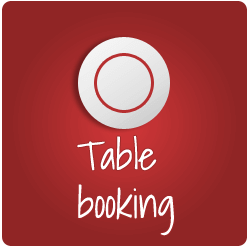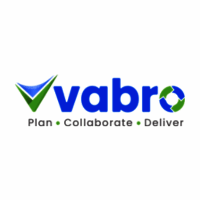Description

Restaurant Table Booking System

Kodihub
Comprehensive Overview: Restaurant Table Booking System vs Kodihub
As of my last update, there isn't a specific product known as "Restaurant Table Booking System, Kodihub" that is widely recognized in the industry. However, I can provide you with a general overview of what a restaurant table booking system typically involves, along with insights on how such products are generally positioned in the market. If Kodihub is a recent or niche product, please note that detailed information may be limited, but I can guide you on what to generally expect from such systems.
a) Primary Functions and Target Markets of Restaurant Table Booking Systems:
Primary Functions:
- Online Reservations: Allow customers to book a table online through a website or mobile app.
- Real-Time Availability: Display real-time table availability to both customers and restaurant staff.
- Customer Management: Maintain a database of customer information, preferences, and booking history.
- Table Management: Optimize table allocations to maximize occupancy and manage walk-ins efficiently.
- Notifications and Reminders: Send automated confirmations, reminders, and notifications to customers.
- Waitlist Management: Manage and update customers on the waitlist status.
- Reporting and Analytics: Provide insights into reservations, peak times, and customer demographics.
Target Markets:
- Restaurants of All Sizes: From small eateries to large chains seeking to streamline their reservation process.
- Event Venues: Places that require organized seating arrangements for events and special dinners.
- Hotel Restaurants: Establishments within hotels that serve external guests and need integrated booking services.
b) Market Share and User Base:
The market for restaurant table booking systems is quite competitive, with several key players:
- OpenTable: Known as a leader with a significant market share. It is widely used by restaurants globally.
- Resy: Another major player focused on improving the dining experience.
- Yelp Reservations: Leverages Yelp's platform to provide reservation services.
- Quandoo, TheFork, and Tock: Also notable players in various regions.
Market Share and User Base Considerations:
- Market share often depends on geographical presence, marketing strategies, and partnerships with restaurant chains.
- OpenTable generally leads in terms of global presence and comprehensive user base.
- User base can reflect the number of restaurants using the system or the number of diners booking through it.
c) Key Differentiating Factors:
Key differentiators in reservation systems often include:
- Ease of Use: User experience for both restaurant staff and diners, including simple and intuitive interfaces.
- Integration Capabilities: How well the system integrates with existing point-of-sale (POS) systems and other restaurant management software.
- Customization: The ability to tailor the system to specific restaurant needs, including branding and menu integration.
- Pricing Models: Subscription-based, commission-based, or flat-fee pricing structures.
- Customer Relationship Management (CRM): Advanced CRM features to enhance guest experiences and leverage data-driven insights.
- Support and Training: Quality of customer support and availability of onboarding resources.
If Kodihub is an emerging player or a localized product, they might be focusing on specific niches or offering unique features tailored to certain markets. It's always important to check the latest reviews and user feedback for the most current insights.
Contact Info

Year founded :
Not Available
Not Available
Not Available
Not Available
Not Available

Year founded :
Not Available
Not Available
Not Available
Not Available
Not Available
Feature Similarity Breakdown: Restaurant Table Booking System, Kodihub
To provide a feature similarity breakdown of a restaurant table booking system and Kodihub, let's first establish what each typically entails. A restaurant table booking system is a platform designed for reservations, table management, and perhaps other functionalities like customer relationship management. Kodihub, on the other hand, is not a standard known software for restaurant bookings but could imply a hypothetical or niche product. However, in this context, I will assume Kodihub functions similarly to other SaaS products for the purpose of comparison.
a) Core Features in Common
- Table Reservations: Both systems likely provide a feature for customers to book tables in advance, accessible via a website or app.
- Calendar Integration: A feature to view the booking schedules and availability in a calendar format.
- Notifications and Reminders: Systems that notify both restaurateurs and customers about upcoming reservations.
- Customer Management: Basic features to capture customer details, preferences, and previous booking history.
- Analytics and Reporting: Tools to analyze data such as peak booking times, popular dishes, and repeat customers.
- User Management: Administrative controls to manage user access levels and permissions.
b) Comparison of User Interfaces
- Restaurant Table Booking System: Typically, these systems prioritize a user-friendly interface for both customers and staff. Key components include an intuitive booking process, mobile-responsive design, and a well-organized dashboard for administrators to manage reservations efficiently.
- Kodihub (Hypothetical Context): If Kodihub were a specialized system for a related purpose, its UI might focus on integration with existing management systems, offering ease in connecting to a broader tech ecosystem. The interface might feature more customizable widgets or dashboards to align with diverse user needs, particularly if Kodihub serves multiple business functions beyond bookings.
c) Unique Features
Restaurant Table Booking System:
- Waitlist Management: Advanced systems might include a feature for managing waitlists and notifying customers when their table is ready.
- Menu Integration: Some platforms integrate the menu for customers to pre-order or view popular items at the time of booking.
- Payment Processing: Option for customers to pay deposits or entire bills during the booking process.
Kodihub (Hypothetical Features):
- Integration Capabilities: If Kodihub focuses on interoperability, it might offer APIs for seamless integration with other software used by the restaurant.
- Customization Features: Kodihub might provide white-labeling options or deeper customization of the booking interface to align with restaurant branding.
- Extended Services: Potential add-ons or modules for managing not just tables but event spaces, catering or other facets of hospitality management.
In a real-world scenario, specifics will depend heavily on the actual products being compared, particularly for Kodihub. However, these comparisons and differentiations can serve to highlight what potential features and distinctions you might consider when evaluating software solutions in these domains.
Features

Customer Communication
Integration and Support
Reservation Management
Table Management
Analytics and Reporting

Content Management
Integrations
Analytics & Reporting
Security & Compliance
User Management
Best Fit Use Cases: Restaurant Table Booking System, Kodihub
Restaurant Table Booking System
a) Best Fit for Businesses or Projects
The Restaurant Table Booking System is best suited for:
-
Independent Restaurants: Small to medium-sized restaurants looking to streamline their reservation process and enhance customer experience.
-
Restaurant Chains: Multi-location chains that need a unified reservation system to maintain consistency and manage bookings across multiple sites.
-
Cafés and Bistros: Establishments with limited seating capacity that need to manage table turnover efficiently and optimize seating arrangements.
-
Fine Dining Establishments: Restaurants focusing on offering a premium experience can use a reservation system to manage demand and ensure personalized service.
-
Pop-Up Restaurants: Temporary dining settings can benefit from a booking system to handle high customer interest during limited-time operations.
b) Preferred Scenarios
The Restaurant Table Booking System is the preferred option in scenarios where:
-
High Demand and Limited Seating: Restaurants experiencing high demand and limited seating capacity can effectively manage reservations to avoid overcrowding and ensure customer satisfaction.
-
Event Management: Restaurants hosting events or special dining nights can use the system to seamlessly manage bookings and ensure optimal resource allocation.
-
Customer Relationship Management: Restaurants that prioritize customer data for personalized experiences and targeted marketing can leverage the booking system for better customer insights.
-
Operational Efficiency: Establishments aiming to reduce manual work, minimize no-shows through reminders, and optimize table management would find significant benefits.
-
Technology Integration: Businesses looking to integrate reservations with other systems like POS, CRM, or loyalty programs will find a dedicated booking system advantageous.
Kodihub
a) Best Fit for Businesses or Projects
Kodihub is typically suited for:
-
Digital Content Providers: Companies seeking a platform to manage and distribute multimedia content across various devices and networks.
-
Media Streaming Services: Startups or businesses focusing on video-on-demand, live streaming, or content aggregation that require a technical backbone for media delivery.
-
Corporate Training Platforms: Organizations that rely on video content for training and development can use Kodihub for securely managing and distributing training material.
-
Educational Institutions: Schools and universities needing a platform to distribute lectures, seminars, and educational content online.
-
Content Creators and Influencers: Individuals or small businesses seeking a platform to professionally distribute their content across multiple channels.
b) Preferred Scenarios
Kodihub is preferred in scenarios like:
-
Cross-Platform Distribution: Businesses that need to distribute content across multiple devices (smart TVs, mobile apps, web platforms) with ease.
-
Scalability Needs: Organizations looking for infrastructure that can scale with growing demand for content without compromising on delivery performance.
-
Customized Solutions: Companies requiring custom integrations or specific features for content management and distribution can look at Kodihub as a flexible solution.
-
Monetization Models: Businesses aiming to employ diverse monetization strategies (subscription, pay-per-view, ad-supported) can use Kodihub for its versatile capabilities.
-
Enhanced User Experience: Ventures focusing on delivering enhanced user experiences with features like personalized content recommendations and performant streaming capabilities.
Catering to Different Industry Verticals or Company Sizes
-
Restaurant Table Booking System: Primarily caters to the hospitality industry, from small independent restaurants to large chains, focusing on enhancing customer service and operational efficiency. It adapts well to varying business sizes by offering scalable solutions that address specific needs, from simple reservation tracking for smaller businesses to comprehensive integration for larger entities.
-
Kodihub: Broadly serves the digital content and media sectors, providing flexibility and scalability for both small businesses, like niche content creators, and large enterprises, such as media conglomerates. By offering a customizable platform, it can meet the demands of varied industry verticals, allowing scalable growth and adaptation to specific content distribution needs.
Both systems, through their tailored features, address specific industry challenges and cater to different business scales, enabling companies to enhance their service offerings and operational capabilities.
Pricing

Pricing Not Available

Pricing Not Available
Metrics History
Metrics History
Comparing undefined across companies
Conclusion & Final Verdict: Restaurant Table Booking System vs Kodihub
To provide a comprehensive conclusion and final verdict on the Restaurant Table Booking System and Kodihub, we'll assess and compare their offerings based on value, pros, and cons, and provide recommendations for potential users.
Conclusion and Final Verdict:
a) Best Overall Value:
Considering all factors such as functionality, user experience, scalability, and cost, the best overall value can differ based on specific business needs:
-
Restaurant Table Booking System: This product typically offers strong value for restaurants focused primarily on seamless table reservations, customer management, and integration with other restaurant operations. It is often designed specifically with the hospitality sector in mind.
-
Kodihub: Kodihub might provide broader value for businesses seeking an integrated solution beyond just table bookings, incorporating aspects like inventory management, point of sale (POS) systems, and customer loyalty programs.
b) Pros and Cons:
Restaurant Table Booking System:
-
Pros:
- Specialization: Highly tailored to managing restaurant reservations, ensuring efficiency and ease of use for front-of-house staff.
- Integration: Often supports integration with other restaurant software, providing a unified approach to restaurant management.
- Customer Experience: Enhanced user experience for end customers, simplifying the booking process online or through mobile apps.
-
Cons:
- Limited Scope: May not offer extensive functionalities beyond reservation management, making it less suitable for restaurants needing broader management solutions.
- Scalability Issues: Depending on the software, some systems may struggle with handling reservations for larger chains compared to simpler setups.
Kodihub:
-
Pros:
- Comprehensive Tools: Offers a wide range of functionalities that go beyond bookings, including inventory and staff management, suitable for comprehensive business needs.
- Customization: Often more customizable, allowing businesses to tailor features to specific operational requirements.
- Scalability: Typically designed to support businesses of varying sizes, from small restaurants to large chains.
-
Cons:
- Complexity: The breadth of tools available can make the system more complex to implement and manage, especially for smaller establishments.
- Cost: May be more expensive compared to simpler systems that only focus on table bookings, potentially placing it out of reach for some small businesses.
c) Recommendations:
-
For Small to Medium-sized Restaurants: If the primary need is an efficient, easy-to-use reservation system that can integrate with existing restaurant technology, the Restaurant Table Booking System is likely the better choice due to its specialization and straightforward implementation.
-
For Larger Restaurants or Chains with Diverse Needs: Kodihub may offer the best value by providing a holistic solution that addresses not only reservations but also additional business operations like inventory and customer relations. This makes it ideal for establishments that need a more extensive suite of tools.
-
Cost Considerations: Users should analyze the total cost of ownership for both systems, including initial setup costs, subscription fees, and any potential long-term savings from increased efficiency or customer retention before making a decision.
Ultimately, the decision between these systems should be guided by the specific operational needs, budget constraints, and strategic goals of the restaurant. Implementing a demo or trial period with either software can also provide valuable insight into which system aligns best with the business's daily operations.
Add to compare
Add similar companies



